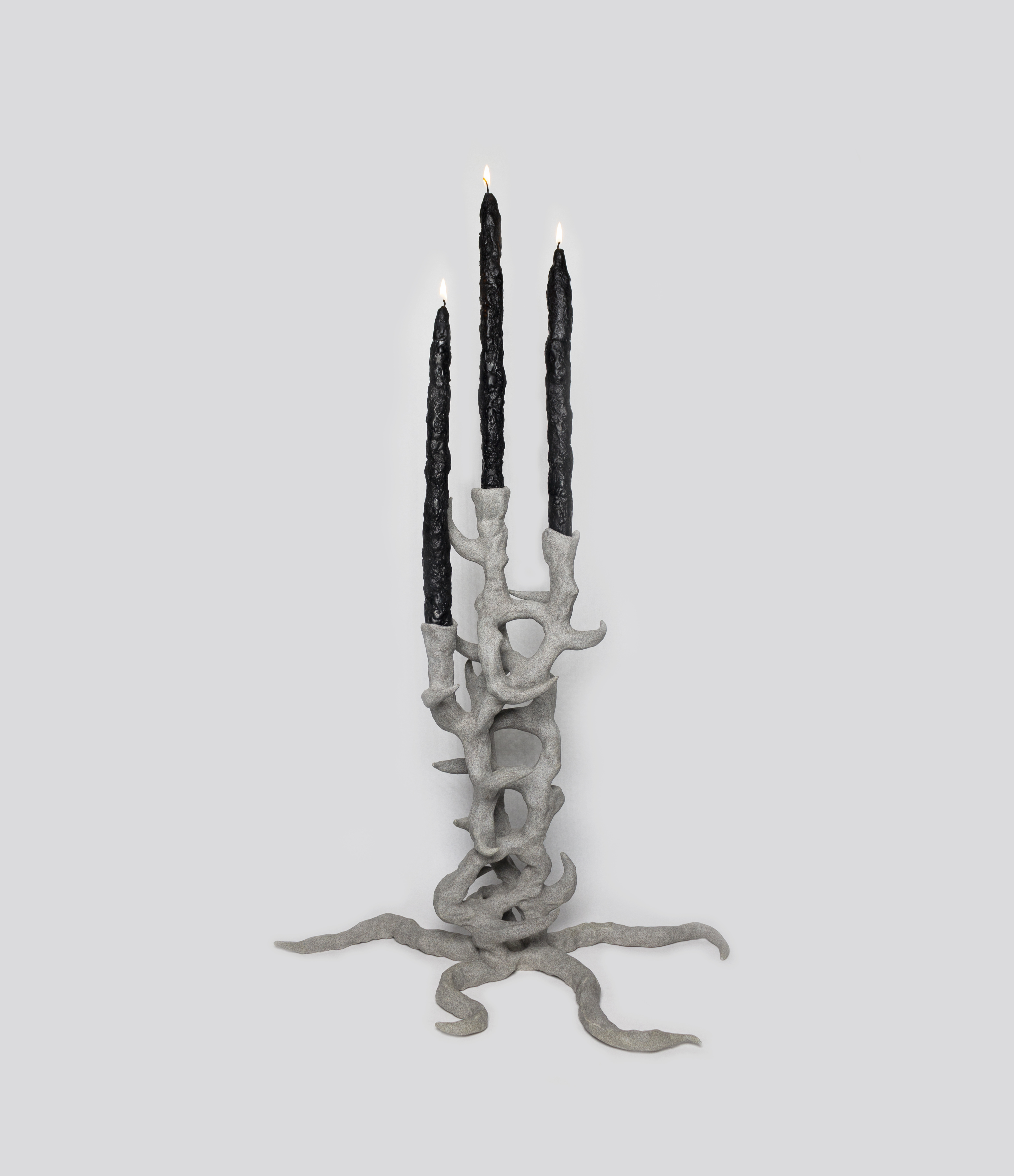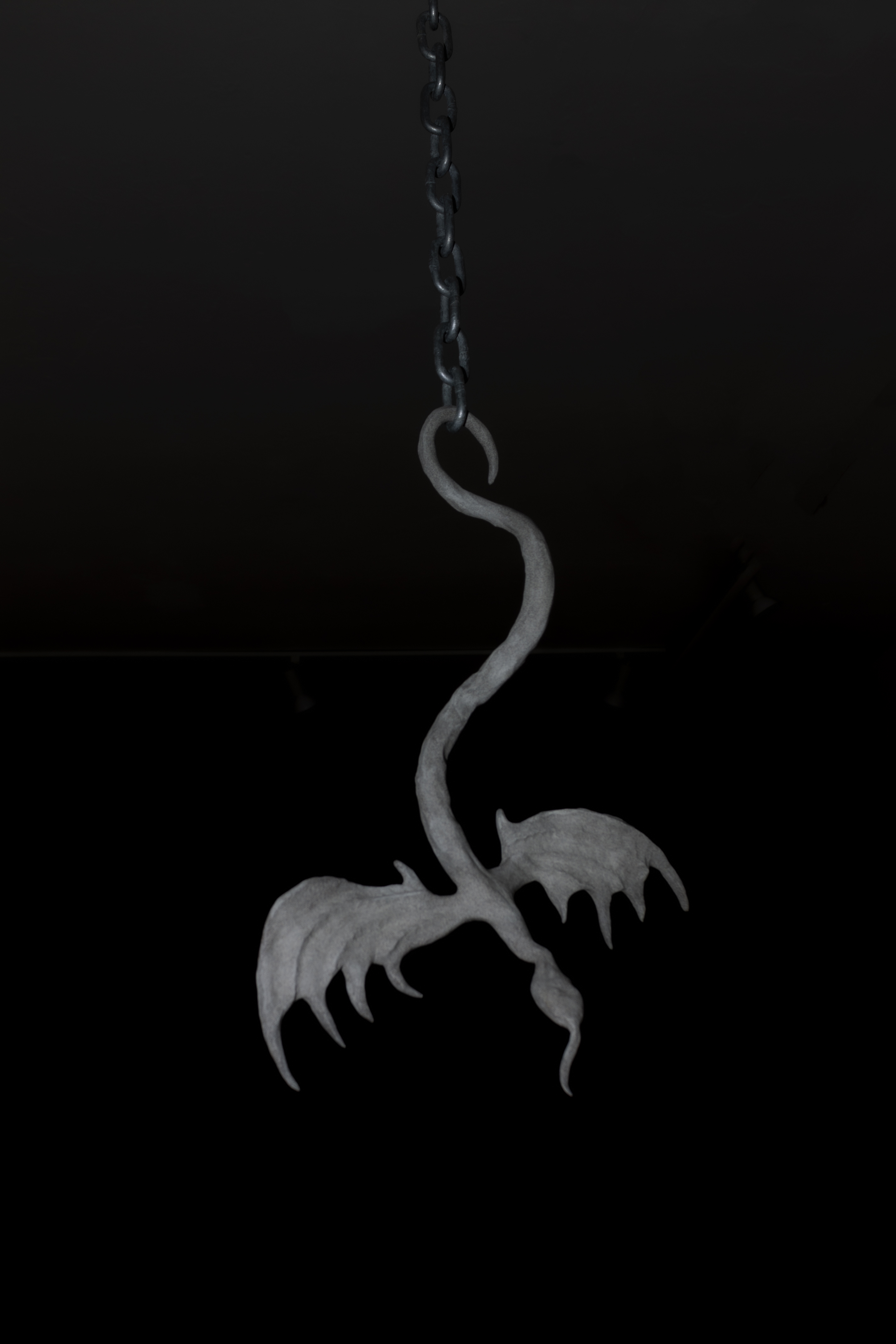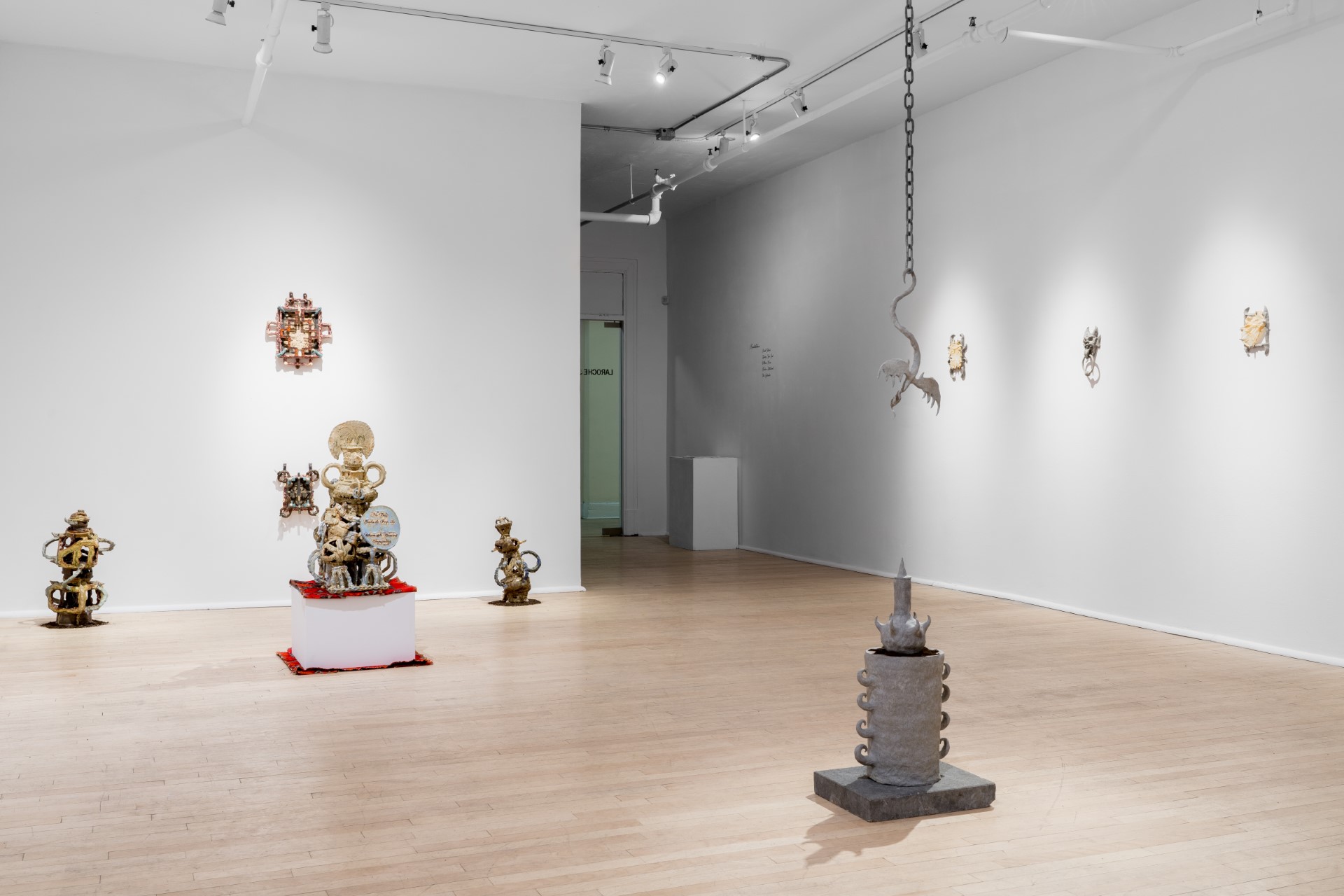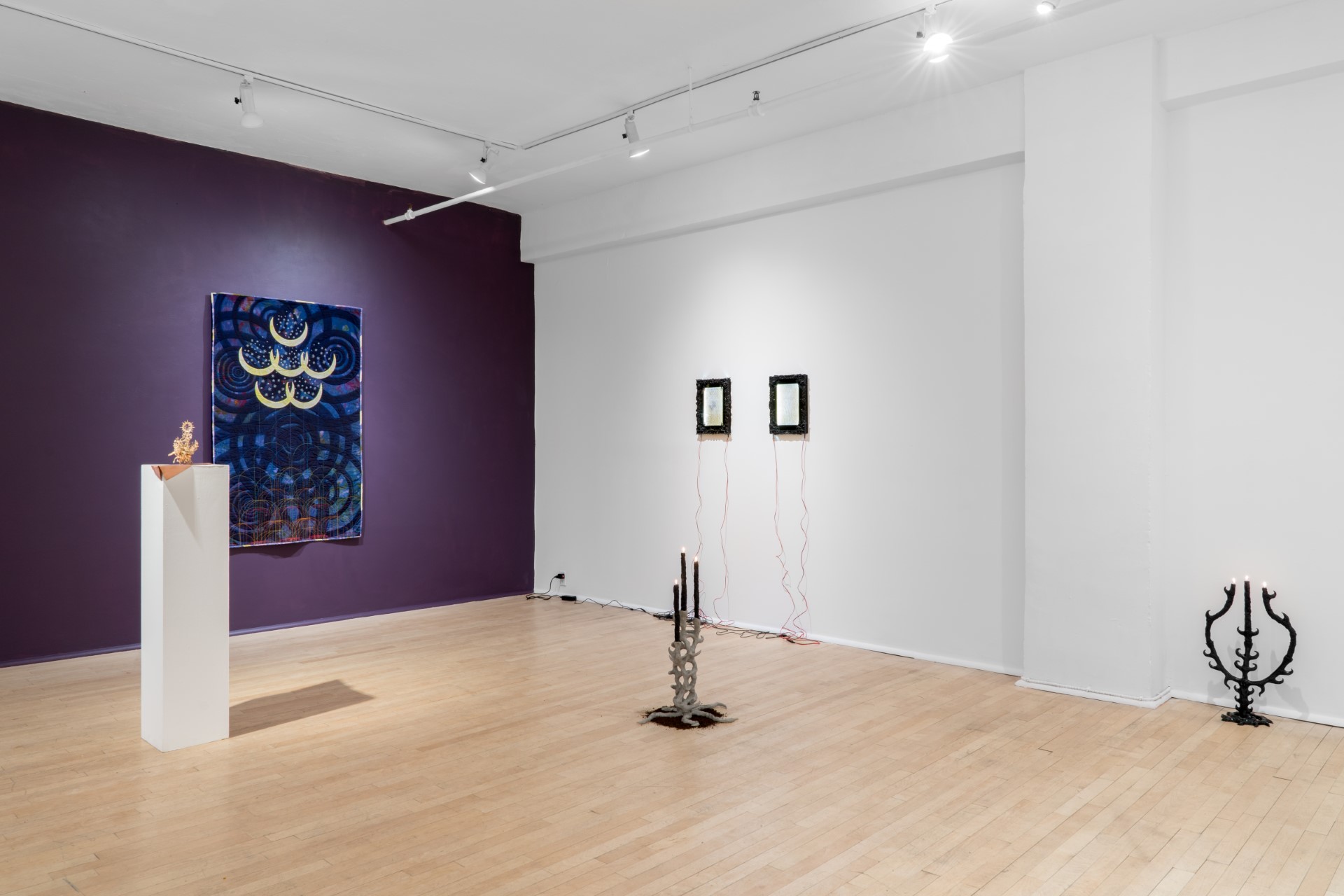









Galerie Laroche/Joncas
Annihilation
Dante Guthrie, Lindsay Lion Lord, William Mora, Andrew Rutherdale, Cléo Sjölander
March 23 - April 22, 2023
Humankind was once, in Greek tragedy, the object of contemplation for the Olympian gods. Acting as puppeteers, they delighted in meddling with human affairs; for the ancient Greeks, divine intervention was the cause for joy and suffering, seasons and storms. Of course, since the time of Homer, science and technology have fundamentally transformed our relationship to the earth and the skies. Reflecting on the cultural and societal shifts that followed industrialization, Walter Benjamin wrote that humankind—in the absence of gods—has become an object of contemplation for itself: our self-alienation has reached a point where we can experience our own annihilation as a supreme aesthetic pleasure.[1] Alienated from human nature and deprived of destiny we became an object of our own contemplation. The forces of capitalism have diverted the forces of life, Eros, into forces of death. Spurred on by a compulsion for growth, capitalism has paradoxically deprived life of both life and death—but life that negates death negates itself.[2]
Aristotle wrote that tragedy purifies the passions; Anne Carson wrote that tragedy is born from grief.[3] In the story of Agamemnon, Kassandra knows that she will die; she has seen it. Cursed with the gift of prophecy, she cries: O river of home my Skamander / I used to dream by your waters / now soon enough / back and forth on the banks of the river of / hell / I will walk with my song torn open.[4] Like Kassandra, are we not at a moment of witness? We are already living on after the end: death has entered the frame.
Maybe the condition of our era is that we are sensing our finitude as a world-forming and world-destroying species.[5] This finitude is exacerbated by mutating and evolving systems of power and domination that have begun to exceed our control. Among the anthropogenic scars we leave behind will be the symbols, objects and sanctuaries we have built to protect ourselves in the present and future: apotropaic charms, grotesques and reliquaries, or dreams cast in bronze. Perhaps the division of life and death needs to be set aside. At the moment of our own loss, the interconnectedness that binds us to our milieu makes itself known.
[1] Benjamin, Walter. The Work of Art in the Age of Its Technological Reproducibility, and Other Writings on Media. Edited by Michael William Jennings et al. Translated by E. F. N Jephcott et al., Belknap Press of Harvard University Press, 2008.
[2] Han, Byung-Chul. Capitalism and the Death Drive. Translated by Daniel Steuer, Polity Press, 2021.
[3] Aristotle, and Michael Davis. Aristotle on Poetics. Translated by Seth Benardete, St. Augustine's Press, 2001.; Euripides. Grief Lessons : Four Plays. Translated by Anne Carson, New York Review Books, 2006.
[4] Aeschylus, et al. An Oresteia. Translated by Anne Carson, First paperback ed., Faber & Faber, 2010.
[5] Colebrook, Claire. Essays on Extinction. First edition., First ed., Vol. 1, Death of the Posthuman /, Open Humanities Press with Michigan Publishing - University of Michigan Library, 2014.
Text by Kate Nugent